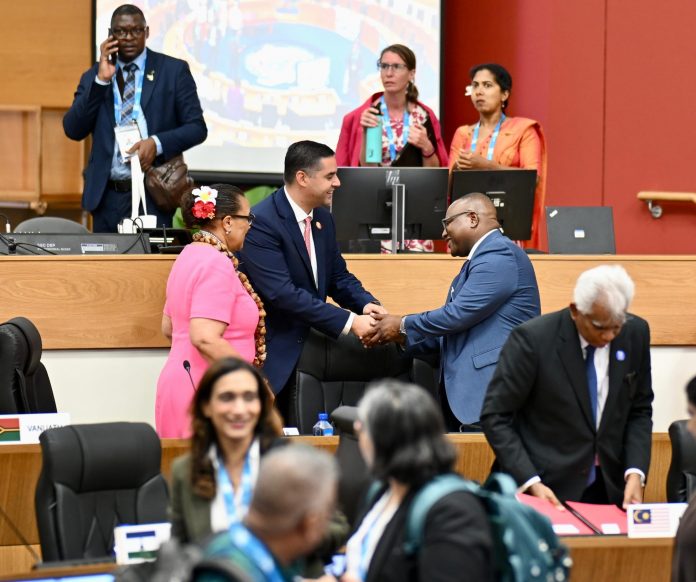Deputy Prime Minister and Minister for Foreign and European Affairs and Trade Ian Borg was elected to chair the Commonwealth Ministerial Action Group (CMAG) for the next two years.
The announcement was made during the 67th meeting of CMAG, which was held on Friday in Samoa as part of the Commonwealth Heads of Government Meeting (CHOGM) 2024. CMAG, which comprises nine Commonwealth member states, works to ensure that Commonwealth countries safeguard the organisation’s fundamental principles, including democracy and fundamental human rights.
Besides announcing Deputy Prime Minister Borg as its new chairperson, Friday’s meeting has also introduced the nine member states who will be sitting on this Group for the next two years. Besides Malta, the Group includes Antigua and Barbuda, Botswana, Canada, Grenada, Malaysia, Mauritius, Samoa, and Zambia. Malta was reconfirmed to serve on CMAG for its second consecutive two-year term, as it also formed part of this Group in 2023 and 2024.
On Friday, Deputy Prime Minister Borg also joined the leaders of the 56 Commonwealth states for the CHOGM 2024 Executive Session, where he stressed the importance of international cooperation in the development of Artificial Intelligence (AI) technologies.
“The future of AI in the Commonwealth is bright, but only if we work together. Through collaboration, shared resources, and a commitment to inclusivity, we can ensure that AI becomes a force for good – improving lives across all our nations,” he affirmed.
Malta is committed to collaborating with fellow Commonwealth partners to share its expertise and contribute to the development of robust AI systems that prioritise citizens’ well-being and protect their rights.
“AI must be developed and deployed with a strong commitment to safeguarding human rights,” Deputy Prime Borg added, as welcomed the work carried out by the Commonwealth AI Consortium, bringing the private sector and governments together for meaningful progress in this field. He also praised the Framework Convention on Artificial Intelligence and Human Rights, Democracy and the Rule of Law launched by the Council of Europe in May, which seeks to minimise the risk of these rights being undermined by AI.
The Maltese Deputy Prime Minister also warned against the risks of a new ‘AI divide’, since the resources required for these technologies are not evenly distributed. He reminded that AI is also poised to contribute to the attainment of several of the United Nations Sustainable Development Goals, including governance, climate change, education, healthcare, and agriculture. However, without equitable access to the necessary tools and infrastructure, the full potential of AI to advance global development will remain unrealised.
“The answer lies in collective action and shared responsibility” Minister Borg affirmed, adding that “the Commonwealth, with its diverse membership, is uniquely positioned to bridge the AI divide. Among its ranks are high-performing nations in AI as well as countries that have yet to realise their full potential in this transformative field. It must ensure that access to AI is more equitable, directly benefiting citizens and economies in countries that are currently lagging behind.”
The Deputy Prime Minister also reiterated Malta’s continued support to the challenges of Small Island Developing States and Least Developed Countries, which make up a significant portion of the Commonwealth’s membership, especially in their efforts to tackle the impacts of the climate crisis.
In Samoa, Minister Borg is leading the delegation of diplomats representing Malta in the high-level meetings and events of CHOGM 2024. He is also holding bilateral talks with the leaders of several Commonwealth member states.
Photo (ODPM-MFET)
![]()








